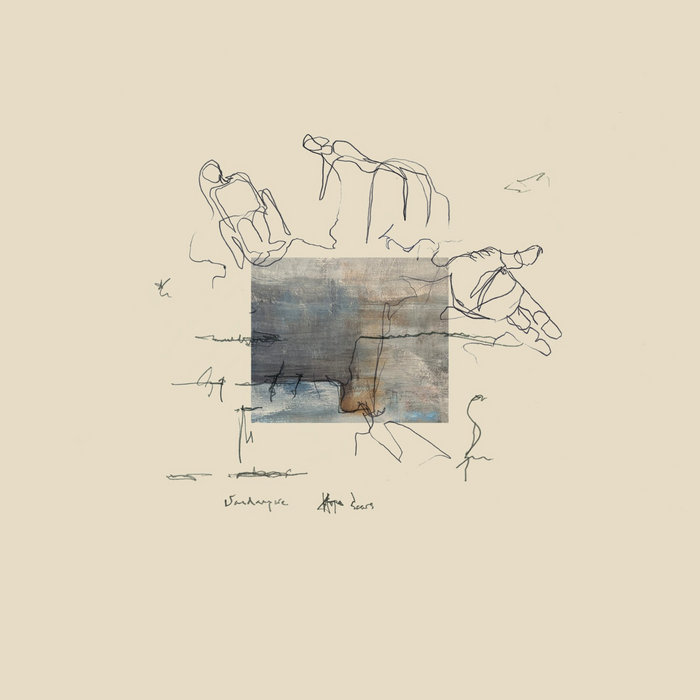The Swiss quintet has released a cinematic album dedicated to the ocean in all its unpredictable majestic splendor mixing the tenderness of Post-Rock and the dense heaviness of Post-Metal.
“Outside, in the west, the sea breaks against a seven-mile-long low sandy beach. It is the sea itself. The North Sea is wide and free, unbroken and unstretched, endless. Black-green and salty, it comes rolling in from the western skies, driven by the great storms from the Arctic and the Channel, driving its white manes when the sea carries and breaks forth the sea mists, so the breaking sea thunders, sounding its deep eternal organ tone from the outermost abyss. Afterward, it rushes towards the beach and crashes into pieces in a white waterfall, with a crash and a thud and a long rattle, dying away in a dull thunder.”
This quote describes the vibes that run through this hour-long instrumental epic dedicated to the ocean. It is the opening lines from the novel Peace by one of Norway´s greatest novelists, Arne Garborg from the weather-beaten South West Coast of Norway. The novel was published in 1892 (translated by yours truly). It is as if this quintet aimed to set music to Garborg´s words, although many of the song titles are associated with whaling. But that´s exactly what great art is: Open for interpretation.
Coming from a country with no border to the sea, it is impressive how the band has used their imagination and visions to compose music that in so many ways describes the multifold aspects of the sea. The album opens with the track ”Nantucket”, named after the whaling town that depended on whaling on the great ocean banks. Glimmering good-natured guitars open the track, slowly sliding into strumming hovering above low-end bass and drums. Here, as on other tracks, the drums take the lead getting faster and louder, increasing in intensity and pace as the synths and guitars soar around it. The drums are like a storm front closing in, followed by a huge dense surging crescendo of guitars as the frothy waves of sound wash over you. The massive diverse drumming drives it forward until it simmers down to mere ripples from the guitars above the bass guitar. A sampled voice appears and as it ends with the words «bad weather» the massive guitars, synths, bass, and drums swell like a rip curl. It sweeps the listener along embraced in the heavy and dense music until it pans out with elongated takes surging forward accompanied by floating synths. The drums balance the shivering heavy sonics building and surging forward until it reaches its climax and fades away far in the horizon.
The sleeve notes say that this album took five years to develop. And the result is quite astonishing. And when one reads that Magnus Lindberg has mastered the album, you just know this is of the highest quality. The way the band orchestrates the instruments to invoke their musical concept is impressive. The guitars make the ripples, the surges, the froth, and the heavy all-consuming darkness. The drums heave and lure the music, sometimes lurking, sometimes throwing it from swell to swell. The synth soars in and out of the sonics, evoking images of the ocean surface looking like silver mirroring the blue sky, other times evoking the lure of the depths. While the guitars are busy visualizing the many aspects of the sea driven by the drums, the low-end bass ties it all together sometimes holding the steadfast rhythm and at other times taking care of the melodic theme.
Imaginary and cinematic music on an album like this evokes emotions in the listener and it also carries a message at the heart of the music. I will let another great Norwegian author from South West Norway speak for me about this as it is a sublime recount of the core of the music on this album. Alexander L. Kielland opened his novel Garman & Worse (1880, translated by W.W. Kettlewell in the English version of the novel, published by London Kegan Paul, Trench & Co. 1885) with these lines:
“Nothing is so boundless as the sea, nothing so patient. On its broad back, it bears, like a good-natured elephant, the tiny mannikins that tread the earth; and in its vast cool depths, it has a place for all mortal woes.
It is not true that the sea is faithless, for it has never promised anything; without claim, without obligation, free, pure, and genuine beats the mighty heart, the last sound one in an ailing world. And while the mannikins strain their eyes over it, the sea sings its old song.
Many understand it scarce at all, but never two understand it in the same manner, for the sea has a distinct word for each one that sets himself face to face with it.”










